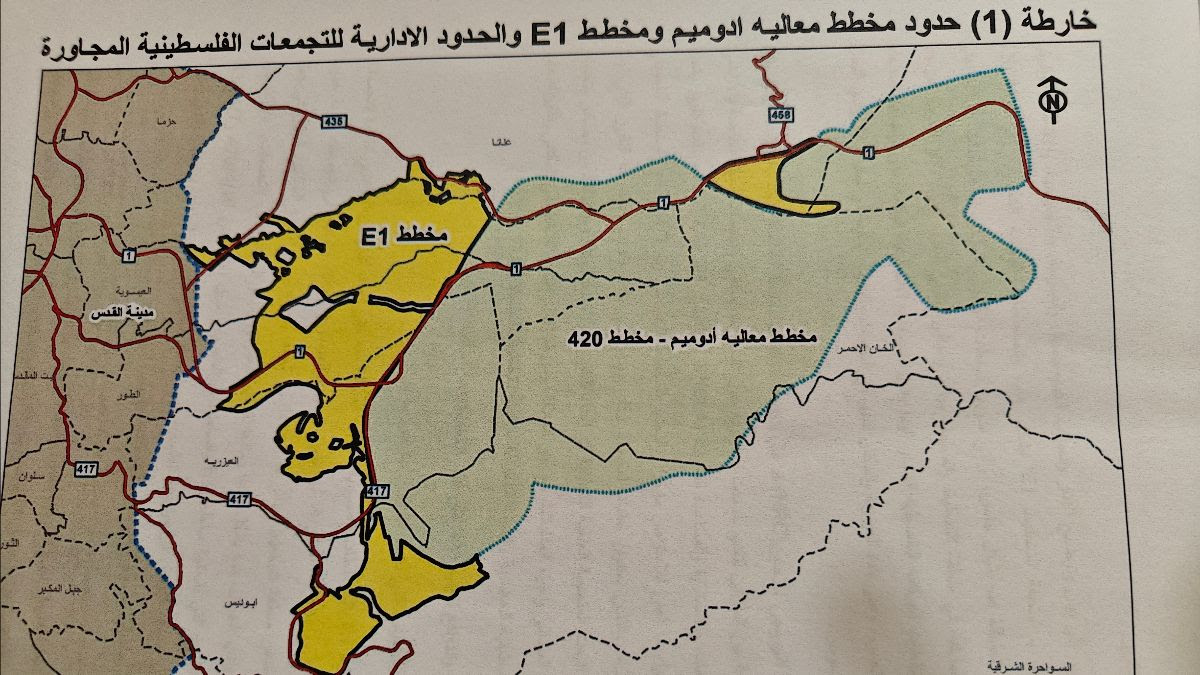Their story is one of resilience, resistance, and heartbreak, marked by forced displacement, daily threats, and a steadfast refusal to disappear. “They want the land without the people” In the heart of Khan Al Ahmar, community leader Abu Khamis greets visitors not with bitterness, but with clarity and urgency, and of course, Bedouin coffee. "If we leave," he said, pointing to the hills surrounding his home, "a settlement will be built here the next day." His fears are not speculative. Just days ago, the Al Hathroura community, comprised of 25 Bedouin families originally from Khan Al Ahmar, was forcibly displaced by Israeli security forces. They were pushed into the West Bank, leaving behind the land their ancestors had herded and cultivated for centuries. “The people cried,” Abu Khamis said. “Not just for their homes, but for their dignity. We are not beggars. We are the inheritors of this land.” Living under siege The struggle is not just about land—it’s about survival. With the looming expansion of the Ma’ale Adumim settlement bloc, Khan Al Ahmar could soon be encircled by walls and roads that turn the community into a closed-off enclave. “What if a woman needs to give birth?” we asked. Abu Khamis replied calmly but gravely, “We will put her on a donkey and take her to the hospital. But there is no guarantee Israel will let her and her newborn back in.” Every day is a logistical and emotional challenge. The only school in the area, a modest but vital facility, serves 26 Bedouin communities. All the teachers come from Jericho. If the wall is completed, access to education will be severed. And still, each morning, children walk to school under the watchful eyes of settlers, enduring harassment as a daily routine. “Thanks to the international presence—especially the ecumenical accompaniers who used to come twice a week—we felt some protection. But we need more than visits,” Abu Khamis said. “We need support: food baskets, school fees, medicine. That’s how we stay steadfast.” The World Council of Churches (WCC) Ecumenical Accompaniment Programme in Palestine and Israel had been working in the area before accompaniers had to be evacuated in June. Jabal Al Baba: rebuilding from the rubble Not far from Khan Al Ahmar, in Jabal Al Baba, Abu Basel stands amid the debris of demolished homes, recounting not the losses, but the rebuilding. His community has faced demolition time and again. Each time, they rise and rebuild. Now, a newly announced bypass road—ironically named the “Lifeline Road”—threatens to isolate the community entirely, cutting it off from essential services and movement. “No food, no water, no doctors, no school,” Abu Basel said. “They call it a lifeline, but it’s a road to our isolation.” And yet, he remains hopeful. He showed us numerous photos of various Ecumenical Accompaniment Programme in Palestine and Israel groups who had visited the community over the years. Smiling, he said, “They didn’t just offer protection—they gave us hope.” Each accompanier, he explained, brought something unique: skills, solidarity, and the reassurance that the community was not alone. “I still believe we can stop this,” he said. “If there is enough international pressure, Israel will be forced to abandon these plans. But we need the world to see us, not as statistics, but as people.” Forgotten by the world Both communities share a painful truth: they feel abandoned. “The world has turned its back,” said Abu Khamis. “We don’t want sympathy—we want action. Protection. Pressure. Presence.” The Bedouin of East Jerusalem are not just holding onto tents and tin homes—they are holding onto identity, memory, and justice. Their presence on this land is a form of resistance, a living testament to a history that refuses to be erased. As the sun sets over the hills of Khan Al Ahmar and Jabal Al Baba, one thing becomes clear: these communities are not just surviving, they are defying. In the face of bulldozers and bureaucracy, they hold onto their land, their dignity, and their unshakable belief that they belong. Because, as Abu Khamis said, “We were born here. We will die here. But we will not leave.” Ecumenical Accompaniment Programme in Palestine and Israel | 



No comments:
Post a Comment